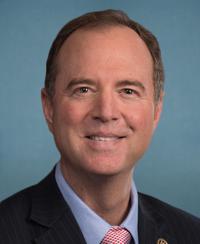0
0
0
Food for Thought Act of 2023
12/15/2023, 4:00 PM
Summary of Bill HR 4812
The Food for Thought Act of 2023, also known as Bill 118 hr 4812, is a piece of legislation currently being considered by the US Congress. The main goal of this bill is to address food insecurity among children in the United States by expanding access to nutritious meals in schools.
One of the key provisions of the Food for Thought Act is the establishment of a grant program to provide funding to schools to offer free breakfast and lunch to all students. This program aims to ensure that all children have access to healthy meals during the school day, regardless of their family's income level.
Additionally, the bill includes measures to improve the nutritional quality of school meals, such as increasing the availability of fresh fruits and vegetables and reducing the amount of added sugars and sodium in school lunches. It also seeks to increase participation in school meal programs by simplifying the application process and reducing stigma associated with receiving free or reduced-price meals. Overall, the Food for Thought Act of 2023 aims to address food insecurity among children in the United States by expanding access to nutritious meals in schools and improving the quality of school meal programs. This legislation has the potential to have a significant impact on the health and well-being of children across the country.
One of the key provisions of the Food for Thought Act is the establishment of a grant program to provide funding to schools to offer free breakfast and lunch to all students. This program aims to ensure that all children have access to healthy meals during the school day, regardless of their family's income level.
Additionally, the bill includes measures to improve the nutritional quality of school meals, such as increasing the availability of fresh fruits and vegetables and reducing the amount of added sugars and sodium in school lunches. It also seeks to increase participation in school meal programs by simplifying the application process and reducing stigma associated with receiving free or reduced-price meals. Overall, the Food for Thought Act of 2023 aims to address food insecurity among children in the United States by expanding access to nutritious meals in schools and improving the quality of school meal programs. This legislation has the potential to have a significant impact on the health and well-being of children across the country.
Congressional Summary of HR 4812
Food for Thought Act of 2023
This bill allows the Department of Education to award grants for eligible institutions of higher education to provide free meals to low-income students through on-campus meal programs.
Read the Full Bill
Current Status of Bill HR 4812
Bill HR 4812 is currently in the status of Bill Introduced since July 20, 2023. Bill HR 4812 was introduced during Congress 118 and was introduced to the House on July 20, 2023. Bill HR 4812's most recent activity was Referred to the House Committee on Education and the Workforce. as of July 20, 2023
Bipartisan Support of Bill HR 4812
Total Number of Sponsors
1Democrat Sponsors
1Republican Sponsors
0Unaffiliated Sponsors
0Total Number of Cosponsors
90Democrat Cosponsors
90Republican Cosponsors
0Unaffiliated Cosponsors
0Policy Area and Potential Impact of Bill HR 4812
Primary Policy Focus
EducationAlternate Title(s) of Bill HR 4812
Food for Thought Act of 2023
Food for Thought Act of 2023
To amend the Higher Education Act of 1965 to authorize the Secretary of Education to make grants to institutions of higher education to provide free meals to low-income students through existing on-campus meal programs, and for other purposes.
Comments
Sponsors and Cosponsors of HR 4812
Latest Bills
Intelligence Authorization Act for Fiscal Year 2026
Bill HR 5167December 9, 2025
FISH Act of 2025
Bill HR 3756December 9, 2025
ePermit Act
Bill HR 4503December 9, 2025
Strengthening Agency Management and Oversight of Software Assets Act
Bill HR 5457December 9, 2025
Department of Defense Appropriations Act, 2026
Bill HR 4016December 9, 2025
Unlocking our Domestic LNG Potential Act of 2025
Bill HR 1949December 9, 2025
A joint resolution providing for congressional disapproval under chapter 8 of title 5, United States Code, of the rule submitted by the Bureau of Land Management relating to "National Petroleum Reserve in Alaska Integrated Activity Plan Record of Decision".
Bill SJRES 80December 9, 2025
Roadless Area Conservation Act of 2025
Bill S 2042December 9, 2025
Holocaust Expropriated Art Recovery Act of 2025
Bill S 1884December 9, 2025
Working Families Flexibility Act of 2025
Bill HR 2870December 9, 2025
Food for Thought Act of 2023
Bill S 2441December 7, 2023





